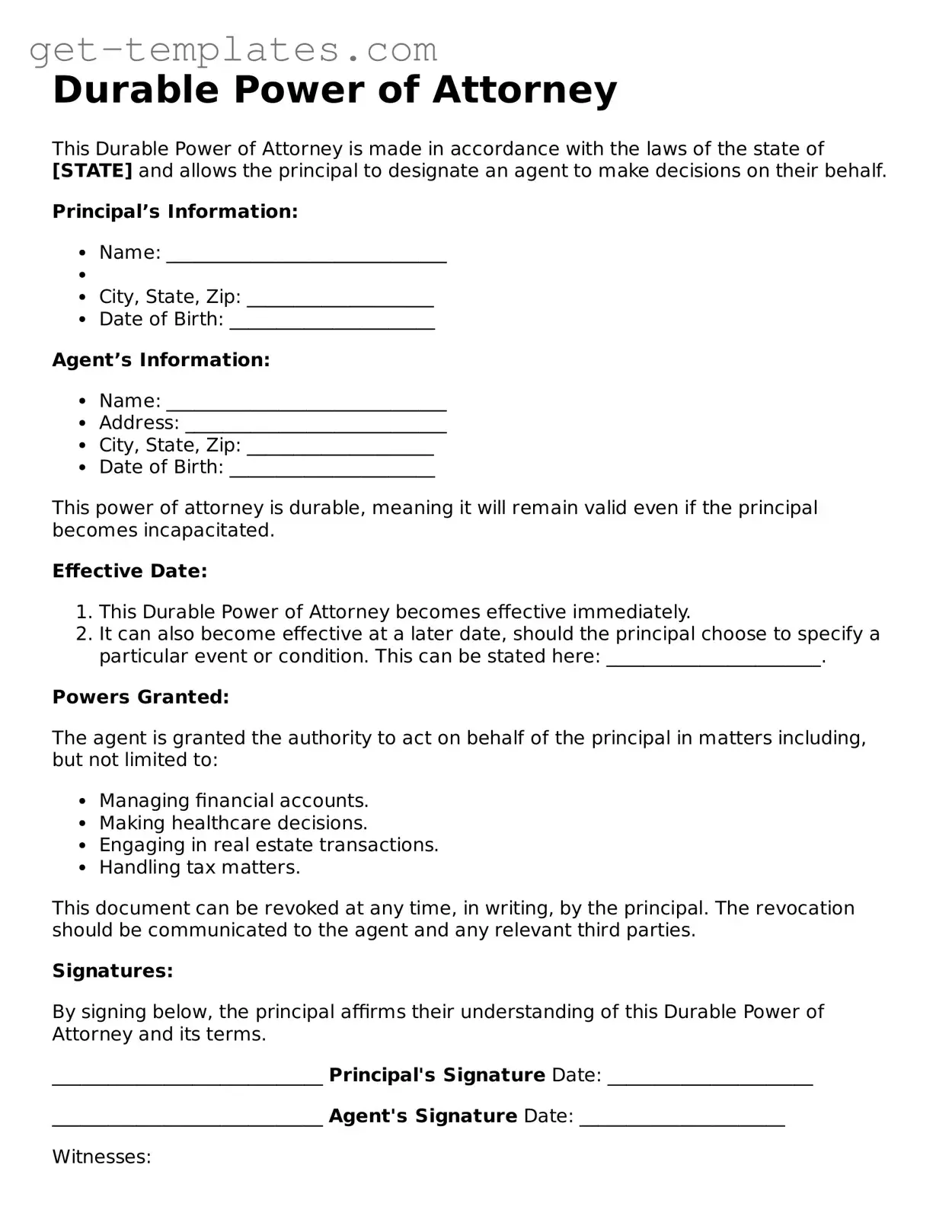Attorney-Approved Durable Power of Attorney Form
A Durable Power of Attorney is a legal document that allows an individual, known as the principal, to designate another person, referred to as the agent, to make decisions on their behalf in the event they become incapacitated. This form remains effective even if the principal is unable to communicate their wishes. Understanding the importance of this document can help ensure that your preferences are honored during difficult times.
Get Document Online

Attorney-Approved Durable Power of Attorney Form
Get Document Online
You’re halfway through — finish the form
Finish Durable Power of Attorney online — edit, save, download made easy.
Get Document Online
or
⇓ PDF Form
